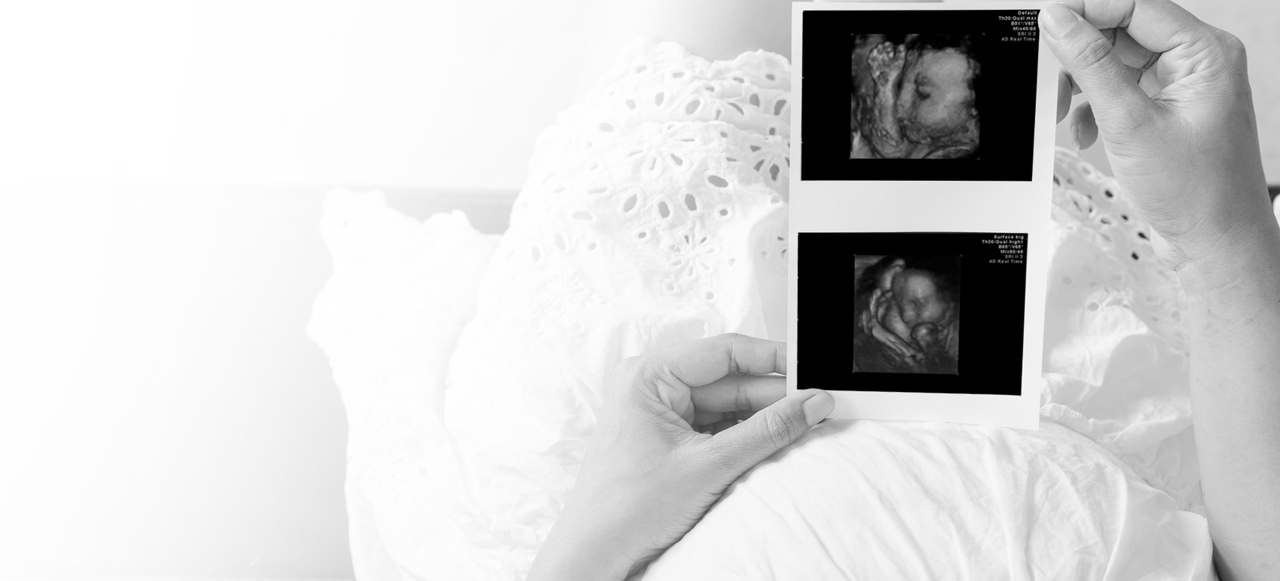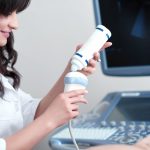
In NSW a chromosome abnormality is diagnosed in about 1:800 pregnancies, with the level of risk varying with the age of the mother. Testing for chromosome abnormalities is available to any pregnant woman. Newcastle Ultrasound are experts in prenatal scanning. We were among the first in the area to offer amniocentesis and chorion villus sampling (CVS). These tests are now reserved to gather additional information that can aid with diagnosis pending an abnormal finding in either the NIPT or nuchal translucency (NT) tests, which are simpler to perform and safer for your developing baby. CVS and/or amniocentesis are still used to test for hereditary or genetic conditions not detected by NIPT or the nuchal translucency scans.
Non-Invasive Prenatal Testing (NIPT)
Non-invasive prenatal testing is a highly accurate screening test. It is a simple maternal blood test that is safe and carries no risk of miscarriage. It can be performed from 10 weeks of pregnancy and is highly accurate for some chromosome abnormalities, including Down syndrome, Trisomy 13 and 18 and the sex chromosomes. Read more about NIPT in our next post.
Nuchal Translucency (NT)
A nuchal translucency scan is best performed between 12-14 weeks of pregnancy. The nuchal translucency is a screening test not a diagnostic tool. It can detect up to 95% of babies with a risk of Down syndrome and other abnormalities. This is a simple and non-invasive test and carries no risk of miscarriage. A combination of a maternal ultrasound and blood test is performed to generate a risk assessment. Read more about nuchal translucency screening in our next post.
Chorion Villus Sampling (CVS)
The baby and placenta share the same chromosomes and placental cells which can be tested to determine the chromosome make-up of the baby.
This test is usually performed between 11 and 14 weeks of gestation. The test is highly accurate looking at all of the baby’s chromosomes with an error rate of much less than 1% for Downs syndrome, Trisomy 18 and 13 and the sex chromosomes. However this test carries a slight risk of causing a miscarriage as a fine metal catheter or needle is inserted into the placenta to obtain a placental tissue sample. The results are usually obtained in about 10 days. A faster result using Fast FISH can look specifically at chromosomes 21.18, 13 and the X and Y chromosomes with results in 24-48 hrs. CVS can also be used to test for genetic conditions such as cystic fibrosis and rare chromosome disorders such as translocations, mutations and deletions..
Amniocentesis
This test is usually performed at 15-16 weeks of gestation. Using ultrasound guidance, a fine needle is inserted into the pregnancy sac to obtain fluid from around the baby.
This fluid contains cells from the baby’s skin which can then be grown in culture and provide the chromosome makeup of the baby. This test looks at all of the baby’s chromosomes and again a faster result using Fast FISH can look specifically at chromosomes 21.18, 13 and the X and Y chromosomes with results in 24-48 hrs. Amniocentesis can also be used to test for genetic conditions such as cystic fibrosis and rare chromosome disorders such as translocations, mutations and deletions.. The test is highly accurate with an error rate of much less than 1%. There is also a small chance of miscarriage with this procedure
Triple Test
This test is now rarely used due to a lower level of accuracy. The nuchal translucency test is much more accurate and can be performed earlier in the pregnancy.
Fetal abnormality can occur in any pregnancy for a mother of any age
Generally we recommend that you have a nuchal translucency scan at 12-14 weeks of gestation and a morphology scan at 18-20 weeks of the pregnancy. If any abnormalities are found we will always counsel you carefully before planning the next step. Call our patient liaison coordinator on (02) 4957 3899 to discuss pricing or to book in for your pregnancy chromosome tests. Alternatively, speak to your GP about a referral to visit our clinic.
